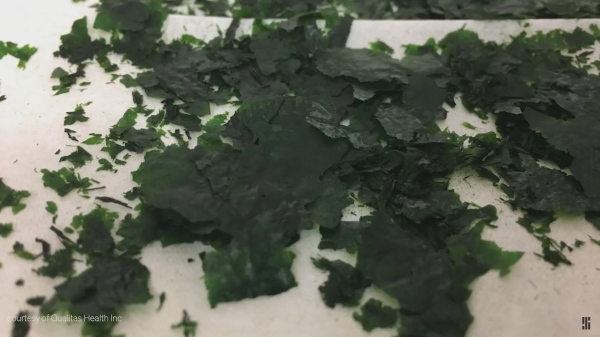For those of us who grow up around natural swimming holes, algae are the reason we have to wash after taking a dip. Swimmer’s itch* or just being covered in green goop is not an attractive way to spend an afternoon. Lumping all algae together is not fair, some of it is nasty but some of it is delicious and humans have been eating it for generations.
If you are thinking that cases of algae cuisine are not widespread and that algae does not sound appealing, you are not alone. It is a tough sell, like convincing someone to try dandelions for the first time. It may not warrant a refrigerator section in the grocery store yet, but algae can produce protein-rich food which doesn’t require a lot of processing.
Currently, there is a lot of work to be done to bring up the efficiency of algae farms, and Qualitas has already started. The leaps they are making signify just how much room we have for improvement. The circulating paddle wheels, which can be seen in the video below the break, use one-third of the energy from their previous version. Their harvester uses one-thirtieth! Right now, their biggest cost comes from tanks of carbon dioxide, which seems off given that places such as power plants pay to get rid of the stuff. That should give some food for thought.
The 2018 Hackaday prize could use some algal submissions and you could take that to the bank. Ready to start growing your own algae, automate the process. It may also keep you from tripping while walking to the grocery store, or you can print with it.











